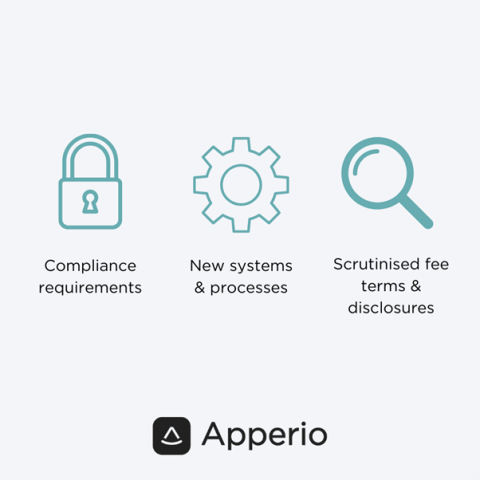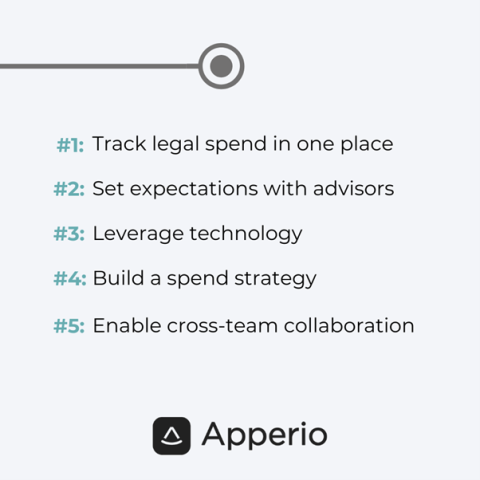New SEC private fund rules: Compliance requirements and priorities for legal teams

In August 2023, the Securities and Exchange Commission (SEC) set the final reporting and disclosure rules for private fund advisers, including private equity firms.
Motivated by transparency and investor protection goals, the rules require quarterly statements to investors on performance, fees, expenses, and preferential terms—as well as annual audited financial statements for each private fund.
It’s a lot of data to crunch. It’s upending traditional structures that have existed for years. Sparking investments in data infrastructure, analytics capabilities, and reporting processes.
Fast forward to today, how are these changes practically impacting private equity firms?
In this blog, we’re delving into how leaders are balancing compliance requirements with private equity business priorities.
Quick recap: New SEC private fund rules and how they impact compliance
Today, the private equity sector is being redefined by compliance impacts. It doesn’t matter whether your organization buys into it or not. The shifts are happening and if you haven’t already felt the impact, it’s only a matter of time.
Let’s dig into the new rules first—and then what to do to navigate them.
The new SEC private fund rules directly impact three key areas:
Significant additional compliance requirements
Regulators now have more say in how financial data is managed. This includes more rigorous tracking, analysis, reporting, and disclosure of detailed investor-level data.
The impact: Greater workloads for legal, finance, and fund teams.
New systems and processes
Instead of manual workarounds and disconnected systems, private equity firms need more data infrastructure to efficiently collect, analyze, and report performance, fees, expenses, and preferential treatment.
The impact: New data systems have become essential to automate spend management and reporting. Good enough is a recipe for disaster.
Increased scrutiny of fee terms and disclosures
The scrutiny on firms has never been greater. Granular disclosure of fees and expenses raises the scrutiny of firms’ fee practices to ensure consistency across investors and limit the potential for terms that benefit one LP over another.
The impact: It puts pressure on legal teams to improve how external fees are managed and provide accurate reporting to LPs.

To set your organization up for success, you’ll have to face these shifts head-on and adapt a new approach for staying ahead.
Why the new SEC private fund rules matter now
While the rules support compliance, they also create a more attractive investment platform—LPs are increasingly assessing the quality of compliance as a key part of fund selection.
Increased market complexity: The financial markets have grown exceedingly complex recently, with ever-emerging products and strategies that can mask portfolio risks and costs. By forcing the need for detailed disclosures and audits, the SEC aims to cut through the complexity so investors understand investments.
Building trust: The SEC private fund rule changes can strengthen integrity through improved governance and practices. This makes compliant funds more attractive as they inspire greater confidence from investors.
Adapting to a global regulatory environment: Regulations globally demand stricter financial transparency and accountability, and the new SEC private fund rules align private equity firms with these standards.
Responding to financial crises: Lessons learned from past financial crises highlight the need for robust regulatory frameworks that can preempt and mitigate risks. The SEC's rules strengthen the financial system's resilience against future crises by enhancing oversight and transparency.
It’s easy to see how the SEC private fund rule changes are timely and necessary, given the current challenges. Ultimately, with high levels of transparency and accountability, leading private equity firms are seen to have a proactive approach to safeguarding the interests of investors.
Navigating compliance hurdles with legal spend management
Sure, change is difficult. It often feels easier to continue on a known path. But the new regulations demand more. With the new SEC private fund rules, managing legal spend is a major priority. And it requires a robust legal spend management system to control costs while ensuring compliance requirements are met.
If you’re behind with adapting to the SEC private fund rule changes, don’t panic. We’ve expert advice to help you. While every firm is different, we’ve seen successful firms follow five common steps:
#1. Track legal and advisory spend in one place
Analyzing your costs throughout the year will give you insight into spend trends, and help you stay on top of reporting fund costs.
#2. Set expectations with your advisors
Developing a clear policy for your external advisors allows you to define how your projects should be worked effectively, and how you will be billed. This in turn gives you more control over costs and simplifies compliance and reporting.
#3. Leverage technology solutions
When managing legal and tax expenses, it’s easy to fall into the trap of using generic finance systems or even spreadsheets. But this isn’t enough to keep up with the new requirements. That’s why successful firms are investing in technology like legal spend management software, contract systems, and compliance tools.
#4. Build a spend strategy
Use your spend data to strategically maximize value, set and monitor KPIs with your advisors, and drive continuous improvements.
#5. Enable cross-team collaboration
Encourage close cooperation between legal, finance, deal and fund teams to align on overarching spend goals.
Taking these steps not only supports SEC requirements, but also streamlines your approach to managing legal expenses to boost investor confidence, competitiveness, and bottom lines.

Now, this may seem a lot to take on when already up against a high workload. So, here’s what leading private equity firms are doing. 👇
Harnessing legal spend management technology
In response to regulatory rules, savvy legal teams are embracing advanced legal technology solutions to transform traditional spend management approaches. With a tool like Apperio, you’ll suddenly find your firm can leverage automation, analytics and monitoring capabilities to boost governance, risk mitigation, and operational efficiency.
Here’s why:
⏱ Real-time spend tracking: The right legal technology will provide real-time insights into legal spend, enabling private equity firms to monitor legal expenses as they occur. This is crucial for maintaining compliance with the new SEC private fund rules that may require strict budget management and cost transparency.
💹 Detailed analytics: Legal spend management software provides detailed analytics on legal spend so that you can identify areas of overpayment, for example. This can be particularly valuable in ensuring that resources are allocated efficiently and in line with compliance requirements.
💸 Budget management: The tech should allow firms to set and manage budgets for different legal matters or departments. This helps in ensuring that legal spend aligns with compliance strategies.
📃 Invoice management: Streamlining invoice review and approval processes, the tech can ensure all legal expenses are accurately recorded and categorized. This assists in the accurate reporting of legal expenses.
🔁 Collaboration tools: Better collaboration between legal, finance, and compliance teams is a must-have for meeting the new SEC private fund rules. Legal spend software provides one platform where all departments have access to the same data.
✒ Document and contract management: Some legal spend management tools will even integrate with other systems that manage contracts and documents relevant to SEC compliance—to ensure all compliance-related documentation is accessible and well-organized.
It’s a much more robust and quicker way to manage legal spend, while maintaining transparency. On top of this, this modern approach allows private equity firms to respond faster to new regulatory changes.
Future-proofing compliance: Legal spend management to navigate new SEC private fund rules
In wrapping up, the SEC's rule changes adopted from 23 August 2023, have significantly reshaped private equity firm’s operations. The new rules are clear. The technology is ready. The only question is: Are you?
Centered on transparency and investor protections, the new SEC private fund rules make comprehensive legal spend management the only option. Firms can meet expanding governance requirements while controlling costs by conducting in-depth spend analysis, adopting legal technologies and supporting cross-departmental coordination.
And that’s where tech comes in. Legal spend management technology delivers immense advantages in real-time tracking, advanced analytics and simplified invoice management—all vital for SEC alignment. It’s a modern approach that meets compliance and boosts productivity, oversight, and investor trust. You just have a single source of the truth.
Looking to gain control of legal spend management? See how Apperio’s platform creates one single view of legal spend. Book a live demo here.
Keen to learn more first? Read these customer stories.